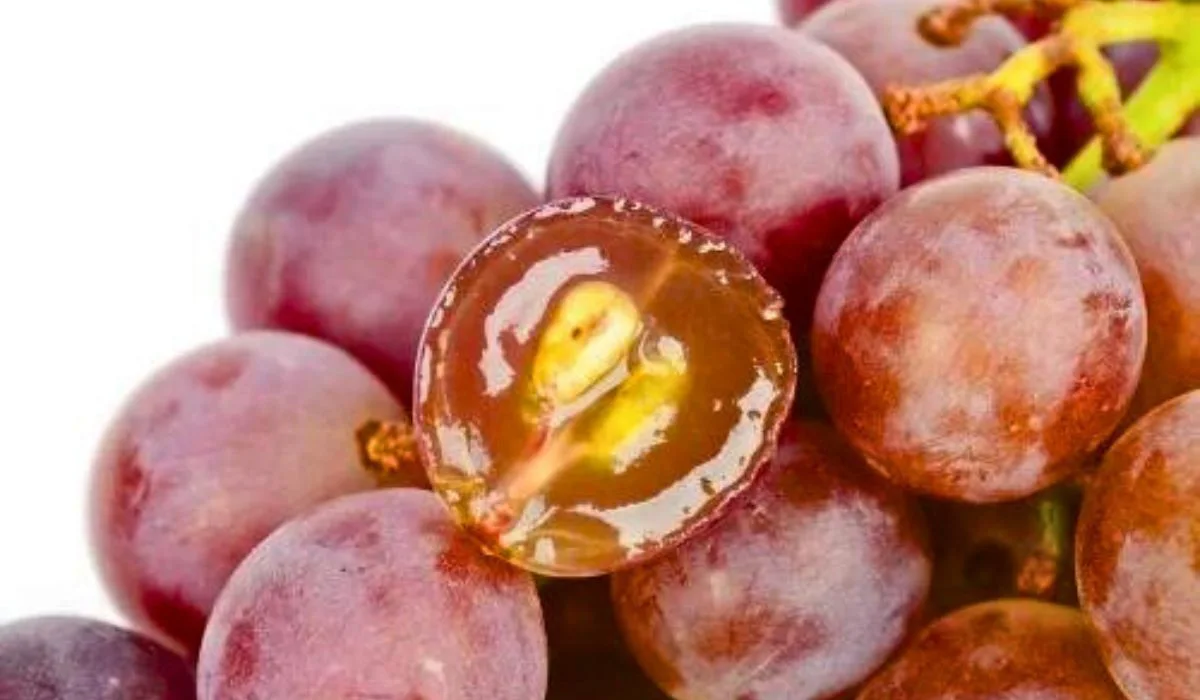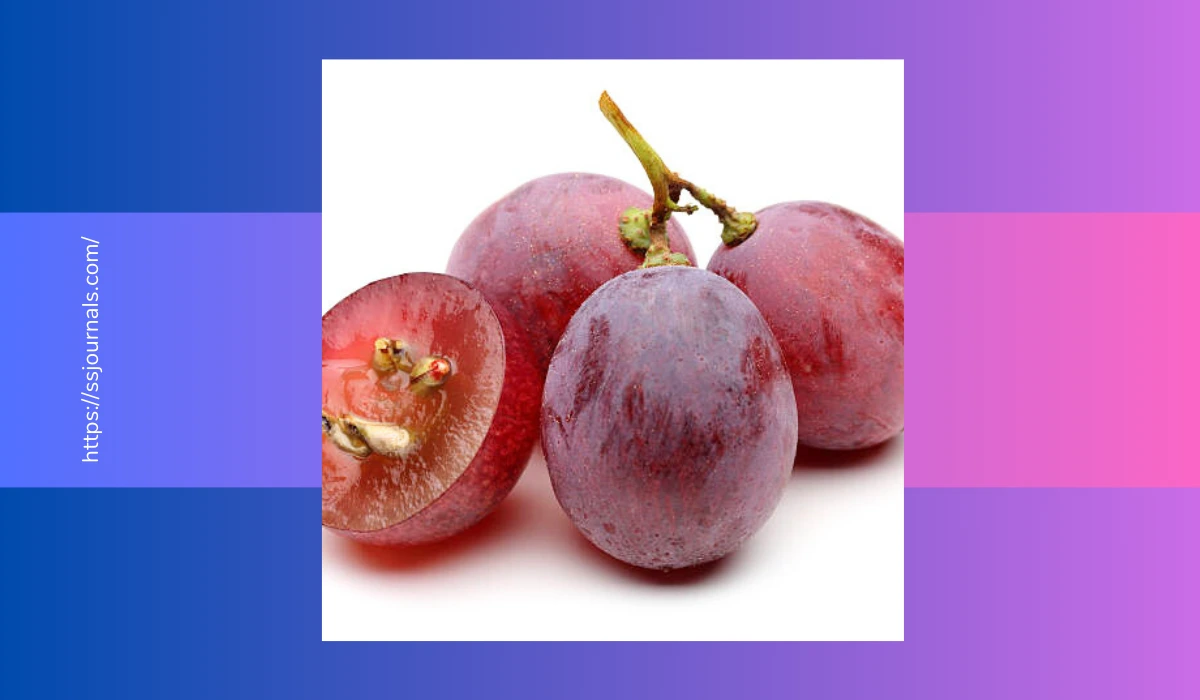One of the most widely consumed fruits in the world is the grape. Whether red, green, or black, grapes offer an abundance of nutrients and potential health benefits. But most people shy away from having grapes just to avoid dealing with its seeds. The amount of effort it takes to remove the drape seeds is insane. Above all, it creates a mess.
But, all these problems can simply be avoided by using one simple measure, eating the seeds! But can you eat seeded grapes? Is grape seed good for you? Well, let’s put all of these doubts to rest, shall we?
In this article, we’ll explore everything you need to know about eating seeded grapes. You’ll learn about its nutrient profile, potential health benefits, etc. Without further ado, let’s get started!
Are Seeded grapes safe to eat?

Before diving any deeper into the grape seed extract benefits, uses, etc. let’s first address the elephant in the room. So, can you eat seeded grapes?
The simple answer is yes, you can and should eat grape seeds! Grape seeds are small but mighty, packing a nutritious punch. They contain fiber, vitamin E, and essential minerals like iron, phosphorus, potassium, magnesium, and zinc. These seeds also contain powerful antioxidants called proanthocyanidins.
Proanthocyanidins are the most abundant antioxidant in grape seeds. Research indicates they are even more powerful than the antioxidants in red wine and green tea! Antioxidants help defend your cells against damage from harmful free radicals. This protective effect may lower your risk for chronic diseases over time. In this specific scenario, the proanthocyanidins in grape seed extract can play a huge role in protecting one against heart disease, cancer, etc.
Now, let’s take a look at the various health benefits one possibly can enjoy if one includes grape seeds as a part of their diet.
Health Benefits Of Seeded Grapes
Grape seed extract (GSE) supplements are growing in popularity thanks to the extraordinary antioxidant capacity of proanthocyanidins. Some of the grape seed extract benefits one can expect to see in them are:
Lower LDL “Bad” Cholesterol
The proanthocyanidins in the grape seed extract help prevent the oxidation of LDL cholesterol particles. Oxidized LDL is more likely to stick to artery walls and form plaque. By preventing LDL oxidation, GSE may lower cardiovascular disease risk.
Reduce High Blood Pressure
Compounds in GSE called procyanidins appear to relax blood vessels and improve circulation and blood flow. This vasodilation effect helps lower blood pressure over time for people with hypertension.
Boost Collagen Production
The antioxidants in GSE protect fibroblasts, the collagen-producing cells in the skin. This allows fibroblasts to keep functioning efficiently to maintain youthful, wrinkle-free skin as we age.
Support Brain Health
Proanthocyanidins may cross the blood-brain barrier to neutralize free radicals that damage brain cells and cause inflammation. This helps slow age-related mental decline and neurodegenerative diseases.
Improve Circulation
GSE enhances nitric oxide production to gently relax blood vessels for better circulation. More oxygen-rich blood can reach organs, muscles, and extremities to boost energy and prevent leg swelling or cramps.
Decrease Inflammation
By acting as free radical scavengers, GSE’s potent antioxidants can lower inflammatory markers like cytokines in conditions like arthritis. Less inflammation equals less joint pain and stiffness.
So, can you eat grape seeds to access these health benefits? Or are these benefits limited to grape seed extract alone?
Is Grape Seed Good for You?
Grape seeds boast an impressive nutrient and antioxidant profile that makes them highly beneficial for your health. The polyphenols, including proanthocyanidins, are linked to powerful anti-aging, anti-inflammatory, and disease-fighting properties.
Eating the entire grape – including the seeds – is an easy, natural way to increase your consumption of these protective compounds. Some research also shows our bodies may absorb nutrients better from whole foods compared to extracts or supplements.
Can You Eat Seeded Grapes? Simple Ways to Enjoy Them
Wondering how you can start enjoying grape seeds as part of your diet? Here are some delicious ideas:
- Snack on red, green, or black-seeded grapes as-is. Choose organic when possible. Wash thoroughly and enjoy the sweet grape flavor and the crunch of the seeds.
- Toss grapes into green salads, grain bowls, yogurt parfaits, oatmeal, or cottage cheese. The sweetness complements savory and creamy dishes. Add full grape clusters or halved grapes.
- Enjoy seeded grapes frozen for a refreshing summer snack. Freeze seedless grapes with seeds sprinkled on top for a sweet treat on a hot day. The icy texture is delicious.
- Add halved grapes and a sprinkle of seeds into muffins, quick breads, scones, or cookies. The grapes add moisture and bursts of flavor. The seeds provide great texture.
- Blend seeded red or green grapes into homemade smoothies. Add yogurt and frozen grapes with seeds into the blender for a nutrient-packed beverage. The seeds add fiber.
- Roast grape clusters drizzled with olive oil and balsamic glaze. Now, sprinkle it with seeds. Roast at 400°F for 15-20 minutes until grapes blister. The heat intensifies the sweetness. Then top with more seeds once out of the oven for some added crunch.
You can also dry and grind seeds from red grapes to make your grape seed oil. Add this oil to dressings, dips, marinades, or smoothies. Grapeseed oil has a high smoke point so it’s great for cooking too.
Also Read: Comfrey Oil For Skin: Uses, Benefits And Side Effects
Conclusion
So grape seeds look like small but mighty packages of fiber, vitamin E, minerals, and antioxidants like proanthocyanidins. It also contains higher levels of beneficial compounds compared to grape flesh or skin. Hence eating seeded grapes will probably allow you to easily access these nutrients in their natural state.
The takeaway? Grape seeds are highly nutritious and great for your health. Enjoying whole, organic seeded grapes can naturally increase your antioxidant intake and lower disease risk over time. Adding grape clusters, halves, or seeds to your favorite recipes is an easy way to boost nutrition. And if you’re looking for targeted wellness support, grape seed extract supplements may also be beneficial when used properly under medical guidance.
At the end of the day, grapes are grapes – and all parts of this delicious fruit offer health perks. So next time you enjoy a grape cluster, don’t forget to reap the nutrients, fiber, and antioxidants from the seeds as well!
Do you eat the seeds when you snack on grapes? What’s your favorite way to enjoy them? Let me know in the comments!

